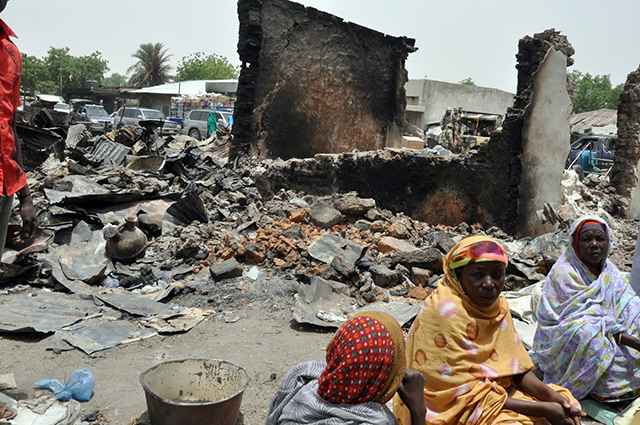Boko Haram Benefitted from State Department Inaction
Charlotte Florance /
A Twitter hashtag, #BringBackOurGirls, has forced the world to pay attention to a terrorist group and conflict that have been threatening the stability of northern Nigeria for some time.
For three years, the U.S. State Department was unwilling to acknowledge the threat and legally define Boko Haram as a terrorist organization, despite the Salafi militants’ overt and calculated efforts to terrorize Nigeria and its neighbors, including international targets such at the United Nations Headquarters.
The Heritage Foundation had been warning of the group’s threat and calling for its official designation by the State Department since 2009. Timely designation would have given agencies such as the FBI, CIA and the Justice Department the resources to focus on disrupting and countering the terrorist group. If the requests for designation by Congress and experts were answered sooner by the State Department, the nearly 300 girls might have completed their high school exit exams and contributed to Nigeria’s future, instead of being kidnapped by terrorists.
As Heritage experts have previously stated, the ongoing instability in Nigeria and the region has significant implications for U.S. interests and that of our partners.” Nigeria is the United States’ largest trading partner in sub-Saharan Africa, remains a top producer of oil sold in the United States and is one of the largest contributors of United Nations peacekeepers worldwide. Given the ongoing crisis in Eastern Europe with Russia, a secure and stable oil supply from Nigeria will be a critical component of European energy security.
Despite the serious implications of instability and violence in Nigeria and the region, the State Department repeatedly deferred to the Nigerian government’s request that the group not be designated so as not to discourage investment in what is now the the largest economy in Africa, rather than allowing U.S. national interests to take precedence.This continued even after Boko Haram attacked the United Nations headquarters in Abuja, the capital of Nigeria, in 2011.
John Bolton, former U.S. Ambassador to the United Nations, recently explained why the threat of Boko Haram should be taken seriously:
The recent kidnapping of hundreds of schoolgirls in Nigeria is a dramatic and potentially tragic example of the fanaticism of Boko Haram and other Islamic militants operating along the seam between Saharan and sub-Saharan Africa … The current hostage-taking is the largest and most violent example of their growing strength, though, sadly, far from the first.
Boko Haram’s threat to regional stability will not end even if Nigerian or neighboring forces locate and secure the kidnapped girls. The Nigerian government needs to continue to focus on Boko Haram’s range of paramilitary capabilities and operational zones. This also means working with its neighbors given the porous borders in the region and Boko Haram’s ties to terrorist groups well beyond Nigeria’s borders. The Obama administration would be naïve to think that once the #BringBackOurGirls story leaves the media limelight, so too will the threat of Boko Haram.

